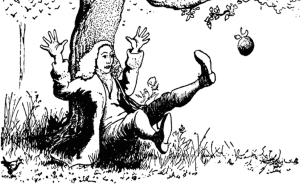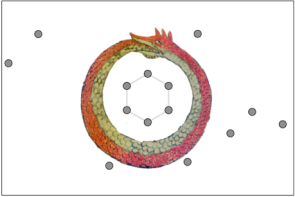Let’s start today’s Blog with an interesting question.
$2 can buy 1 bottle of beer. 4 bottle caps can be exchanged for 1 bottle beer. 2 empty bottles can be exchanged for 1 bottle of beer. How many bottles of beer can you buy with $10?
What’s your answer for this question? 10,15, 18 or more? To be honest, I was quite shocked when I saw people’s answers to it and the way they justify their answers. I tried my best and got 15 bottles of beer for the maximum. But the answer is 20! If you are still wondering how they got this unbelievable number, let me give you some hints. The strategy is to borrow bottles and caps from others and return them back at the end. Now you may say, “Hey, it’s tricky because you didn’t mention we can borrow bottles and caps in the problem!” Yes, I agree with you. But sometimes we need to jump out of our mindsets and be more creative to solve problems.

This is exactly how the students are educated nowadays. Students are encouraged to think more actively and bring out novel ideas, while not receiving enough knowledge to support their imagination. Someone might argue that even Einstein said “Imagination is more important than knowledge.” I believe there was an assumption lying there, which was you already know a lot about one thing. When you know a certain field very well, like Einstein, imagination is something that can help you out develop a new theory or establish a new method. However, for most people, we’re knowing too little to say it. In my opinion, it should just be the opposite. Learning knowledge should always come first. Isaac Newton won’t develop the gravity theory from the falling apple from the tree if he does not have strong background in Physics. Friedrich August Kekulé probably will not realize the structure of Benzene from his dream about snake if he hadn’t been researching it for years. So, I would say knowledge is the basic of imagination.


Back to the question in the beginning of the Blog. If you have enough knowledge in mathematic, you probably noticed this is an easy problem to solve by calculation. Each beer you drink can be used to buy ¾ more beers so in general we expect that if you start then you will be able to drink a total of
 where B is the number of beer you can buy initially with the money you have, which is 5 in our case. Isn’t this amazing to solve a daily life question with your knowledge?
where B is the number of beer you can buy initially with the money you have, which is 5 in our case. Isn’t this amazing to solve a daily life question with your knowledge?
In the past, we always believe that only the most talented and knowledgeable scholars can stay in the ivory tower. However, things started to gradually change in the digital era. I agree with the author that sometimes we emphasize too much on fostering imaginative and innovative students while ignoring the fact that they do not even have a solid background in math and/or science. Students born in the digital era learn how to google everything, including fundamental knowledge, instead of remembering them. Technologies guarantee people high efficiency but also makes people lazy. Should we also plan for the worst if one day there is no electricity and no Internet? Can the students in the digital era survive with over exaggerated imagination?
LikeLike
So thinking outside the box is super important it seems. Could people be creative before being knowledgeable? Can you think of ways that could work?!
LikeLike
I somewhat agree with you, but wonder if this argument can be applied in the other fields such as fine art or music, like a case of a genius teenage musician?
LikeLike
I must be a terrible drinker, I could only afford 8 beers…
I agree that you need some understanding of a system before your creativity can make any reasonable imaginings. NASA are not going to be interested in my ‘novel’ idea of walking to the moon.
However, I do think the converse is just as counterproductive. People who are so ingrained in their field that they cant (or wont) look at things from different perspectives. A Goldilocks situation exists; perhaps this is the real reason why most important contributions to mathematics (or any of the sciences) come from people in their 20s. Older than that, your brain still works, you are just too set in your ways to do anything truly novel.
LikeLike